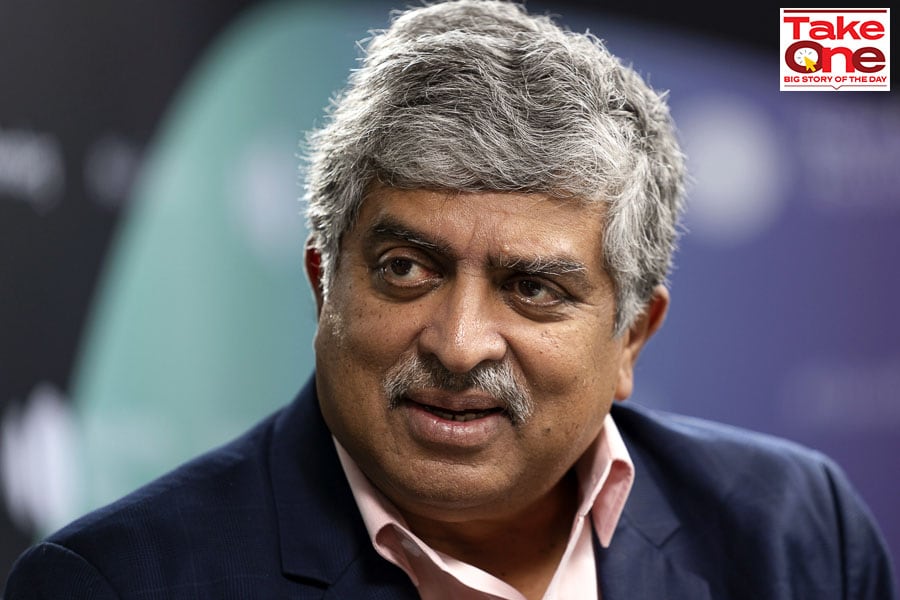
Cryptos as an asset class could be India's middle path: Nandan Nilekani
Even as the clamour for bitcoin, the most popular crypto currency, rises, governments around the world are wary of its volatility. Figuring out its benefits will help build consensus on its regulation and adoption, says the Infosys co-founder
 Image: Wei Leng Tay/Bloomberg via Getty Images
Image: Wei Leng Tay/Bloomberg via Getty Images
Bitcoin, the most popular crypto currency, has surged some 900 percent in the last year, trading this week at around $55,000 for one bitcoin, give or take a couple of thousand dollars. Its fans include Elon Musk, off-and-on the world’s richest person, rainmaker Cathie Wood of ARK Investment Management and a multitude of other celebrities.
In India too, it has a growing following with an estimated six million people having invested about a billion dollars in cryptocurrencies. And entrepreneurs of some 300 crypto-based startups in the country, and their backers, fear that India could ban private crypto currencies altogether.
A more pragmatic path could be struck, if India debates the benefits of crypto currencies and allows it as a well-regulated asset class, rather than as a transaction mechanism, Nandan Nilekani, co-founder of IT services giant Infosys and former chairman of India’s unique ID authority, said in an online discussion on March 22. The discussion, titled ‘Foundation to Transformation: The Next Decade of Indian Tech’ was organised by venture capital firm Blume Ventures.
“I think there's no question that Indians have already started using the underlying technology of Bitcoin, which is, blockchain,” Nilekani pointed out. Further, it is also now widely accepted that India will come out with a digital rupee of its own, controlled by the central bank, Reserve Bank of India, in the next two or three years. “If you have a digital Indian rupee on UPI rails, you don't really need other ‘stablecoins,’” he said. UPI is India’s government-backed unified payments interface.
Governments around the world are wary of allowing private ‘stablecoins’, which are cryptocurrencies with values tied to fiat currencies or other assets, for fear that they could undermine nations. The debate over such currencies also gained momentum after social networking giant Facebook proposed its own global digital currency and financial infrastructure called Libra, in 2019.








